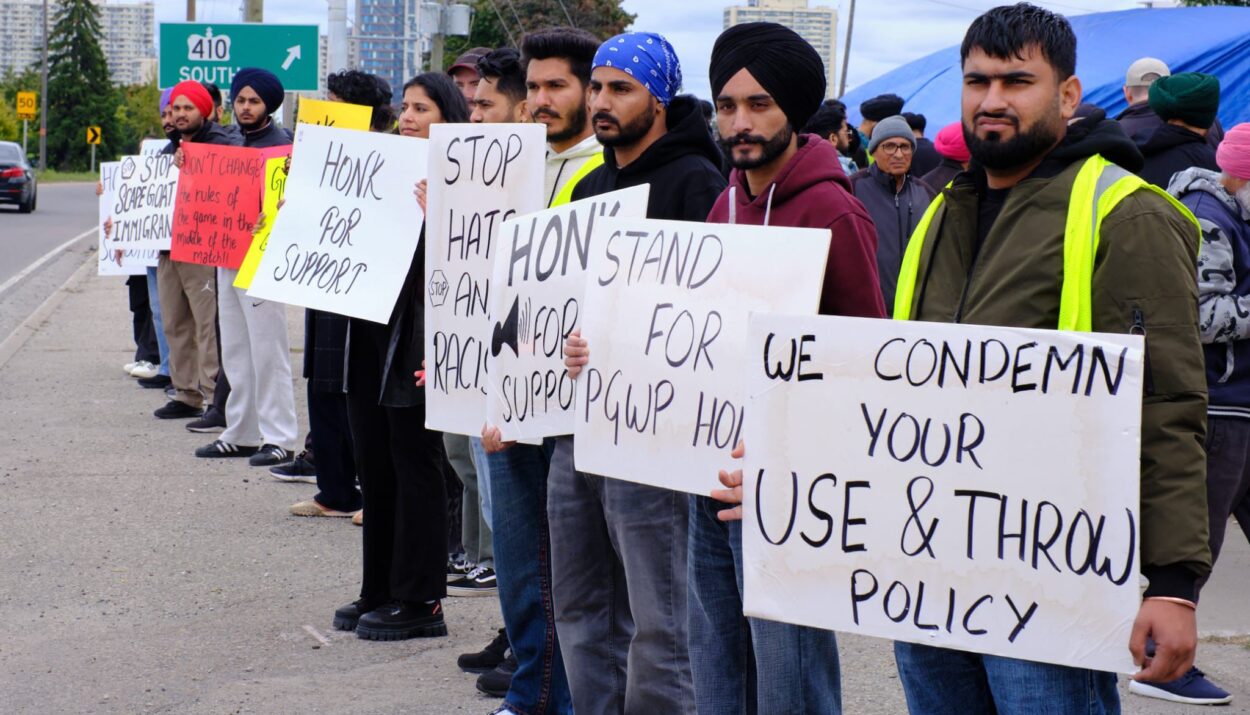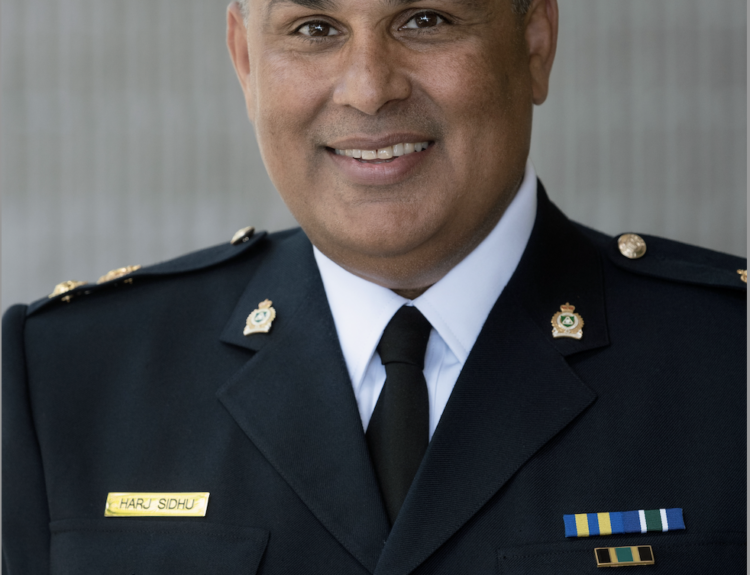By Harinder Mahil
There has been a lot of discussion in the press lately about Canda’s housing problems. Some commentators suggest that international students have caused the housing crisis.
We will be hearing a lot about Canada’s immigration problems as the next federal election approaches. Immigration is likely to be a much bigger issue in the election than it has ever been before.
Last month, the federal government unveiled a three-year immigration plan that will reduce the annual intake of permanent residents over the next three years. It will also reduce the temporary population including international students and foreign workers to 445,901 in 2025 and 445,662 in 2026.
Marc Miller, Minister of Immigration, has confirmed that new regulations impacting the International Students Program have now taken effect, including the number of hours international students may work off campus. Work permits for thousands of students are no longer being renewed.

For three months, current and former international students have been staging a permanent protest near the busiest highway in Brampton, Ontario. They started the encampment on August 30, 2024, to draw attention to the over 200,000 Post-Graduate Work Permit (PGWP) holders at risk of deportation due to the government’s immigration policy changes, and to build support for their demands for fairness, respect, and a path to permanent residency.
Last week, I had an opportunity to hear a presentation by two international students Bikram Kullewal and Mehakdeep Singh, who are part of the encampment in Brampton to get their work permits extended. They made the following points during their presentation:
Canada openly marketed the international students’ program as a pathway to permanent residency and citizenship. Their slogan was: “Study, Explore, Work, Stay.” Colleges and their recruiters abroad propagated this promise.
Most of the students came from working class and farming families. They sold their land and spent their life savings to come to Canda.
Their tuition, labour and taxes contribute $31 billion annually to the Canadian economy.

During COVID, the government allowed international students to work full-time, extended post-graduate work permits, and made it easier for many students to obtain permanent residency. The government also hailed them as heroes.
The government could choose to “grandfather” current and former international students with respect to the new policies, which means that the new rules would only apply to future cohorts of students.
The students’ protest is receiving a lot of support for their cause from the labour movement and community organization in Ontario. These students say that they are fighting back against unjust deportation orders.
During the height of the COVID-19 pandemic, the international students took on jobs that many Canadians refused to do and considered too dangerous. In doing so, they put themselves in harm’s way and kept Canada’s economy going. Lauded as “heroes” and exploited as cheap labour, they are now being told they are disposable and unwanted. This treatment is irresponsible, unacceptable, and unjust.
The labour movement and community groups in Ontario echo these workers’ demands for:
*an extension to work permits that are set to expire in 2024 and 2025.
*a five-year postgraduate work permit for all international students.
*an immediate end to ‘Labour Market Impact Assessment’-based exploitation; and
*a fair pathway to permanent residency.
In my view, the students’ demands are reasonable and should be seriously considered by the government. If the government believes they need to tighten up its policies with respect to international students, it should apply new policies to students who are arriving now and not to those who have been in the country for years.
Harinder Mahil is a human rights activist and is secretary of Dr. Hari Sharma Foundation.















23 Comments
Kulwinder Singh Jossan
1 year agoWell written article by harinder Mahal, I appreciate there efforts and views.
betgaranti güncel giriş
1 year agoHi Neat post There is a problem along with your website in internet explorer would test this IE still is the market chief and a good section of other folks will pass over your magnificent writing due to this problem
betgaranti güncel giriş
1 year agoI have been browsing online more than three hours today yet I never found any interesting article like yours It is pretty worth enough for me In my view if all website owners and bloggers made good content as you did the internet will be a lot more useful than ever before
betgaranti giriş
1 year agoThanks I have just been looking for information about this subject for a long time and yours is the best Ive discovered till now However what in regards to the bottom line Are you certain in regards to the supply
betgaranti giriş
1 year agoyou are in reality a good webmaster The website loading velocity is amazing It sort of feels that youre doing any distinctive trick Also The contents are masterwork you have done a fantastic job in this topic
betgaranti
1 year agoI just wanted to drop by and say how much I appreciate your blog. Your writing style is both engaging and informative, making it a pleasure to read. Looking forward to your future posts!
betgaranti giriş
1 year agoI just could not leave your web site before suggesting that I really enjoyed the standard information a person supply to your visitors Is gonna be again steadily in order to check up on new posts
Ustvarite osebni racun
5 months agoYour article helped me a lot, is there any more related content? Thanks!
binance
4 months agoThank you for your sharing. I am worried that I lack creative ideas. It is your article that makes me full of hope. Thank you. But, I have a question, can you help me?
Kaye Fraunfelter
3 months agoI am glad to be a visitant of this staring website! , thanks for this rare info ! .
binance registrirajte se
3 months agoYour point of view caught my eye and was very interesting. Thanks. I have a question for you.
toto macau
2 months agoIt’s really a nice and helpful piece of information. I’m glad that you shared this helpful info with us. Please keep us up to date like this. Thanks for sharing.
prodentim review
1 month agoVery interesting topic, thanks for putting up.
Kuwin
1 month agokuwin sở hữu kho game đa dạng từ slot đến trò chơi bài đổi thưởng, mang đến cho bạn những giây phút giải trí tuyệt vời.
MM88
1 month agoKhám phá thế giới giải trí trực tuyến đỉnh cao tại MM88, nơi mang đến những trải nghiệm cá cược thể thao và casino sống động.
nhl online streaming
1 month agoAs I website possessor I think the content material here is very great, thankyou for your efforts.
GO88
1 month agoTham gia cộng đồng game thủ tại Go88 để trải nghiệm các trò chơi bài, poker phổ biến nhất hiện nay.
GO88
1 month agoTham gia cộng đồng game thủ tại Go88 để trải nghiệm các trò chơi bài, poker phổ biến nhất hiện nay.
honey trick for memory loss
4 weeks agoReal superb info can be found on site. “We should be eternally vigilant against attempts to check the expression of opinions that we loathe.” by Oliver Wendell Holmes.
the brain song
4 weeks agoMy partner and I absolutely love your blog and find nearly all of your post’s to be just what I’m looking for. Does one offer guest writers to write content available for you? I wouldn’t mind composing a post or elaborating on some of the subjects you write concerning here. Again, awesome blog!
MM88
4 weeks agoVới giao diện mượt mà và ưu đãi hấp dẫn, MM88 là lựa chọn lý tưởng cho các tín đồ giải trí trực tuyến.
MM88
4 weeks agoVới giao diện mượt mà và ưu đãi hấp dẫn, MM88 là lựa chọn lý tưởng cho các tín đồ giải trí trực tuyến.
fdertolmrtokev
1 week agogreat issues altogether, you simply received a emblem new reader. What may you suggest in regards to your put up that you simply made a few days ago? Any certain?